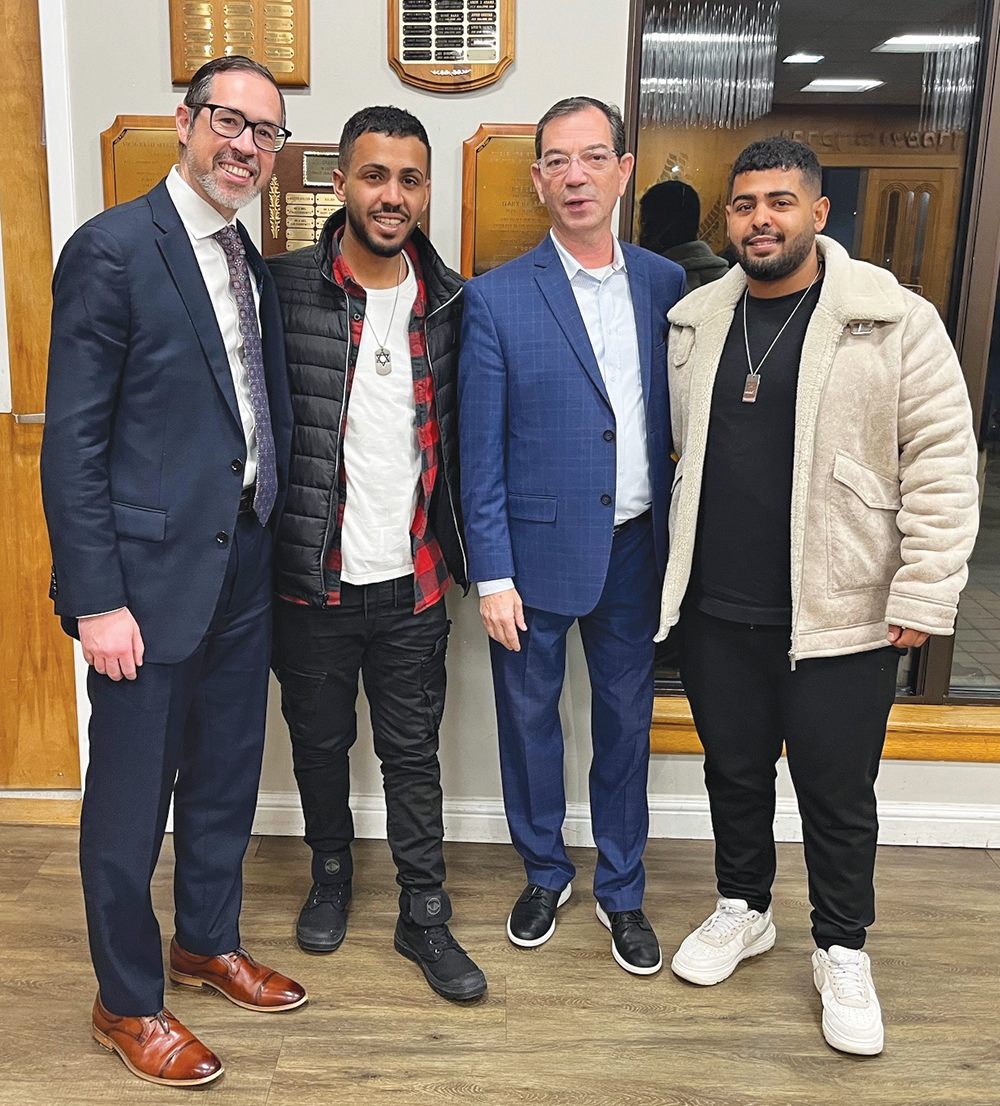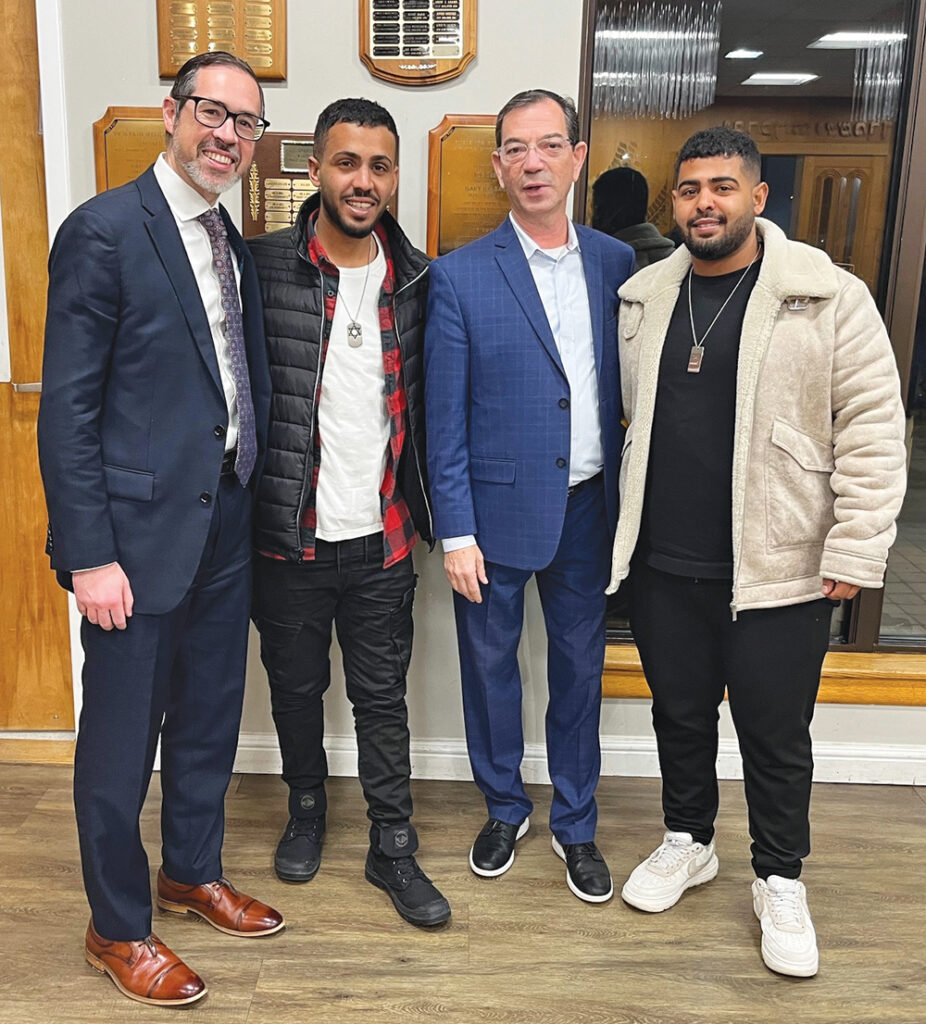
Many shuls in the tri-state area have responded constructively to the challenges of the Israel-Hamas war by bringing in noteworthy speakers to inform, inspire and motivate community members. On Motzei Shabbat, February 3, Discover East Brunswick (an initiative of the Young Israel of East Brunswick) took that approach up a few notches by hosting four remarkable speakers with unique and well-placed perspectives on the challenges facing Israel now. The Discover East Brunswick “Fireside Chat” featured Jason Greenblatt, who served as a senior adviser to President Donald Trump and was his special envoy to the Middle East, helping to put together the Abraham Accords; Tal Heinrich, who serves as the spokesperson for Israeli Prime Minister Benjamin Netanyahu in addressing United States press outlets; and Daniel and Neria Sharabi, two brothers who fought back against Hamas terrorists at the Nova music festival, saved 30 other attendees, and now serve as advocates for survivors of that massacre.
The Fireside Chat was sponsored by Discover East Brunswick and the Wasser Jewish Learning Institute at YIEB. Jeff Chustckie, chair of the Wasser Jewish Learning Institute, told The Jewish Link: “The Wasser Jewish Learning Institute is an ongoing testimonial to the years of dedication by Rabbi and Rebbitzen Wasser to the Jewish community and their attempts to increase Jewish awareness in many ways. [This] program is meant to increase awareness of the attempts of Israel and the U.S. to create peace in the Middle East, sharing the process and trials that they have encountered to do so.”
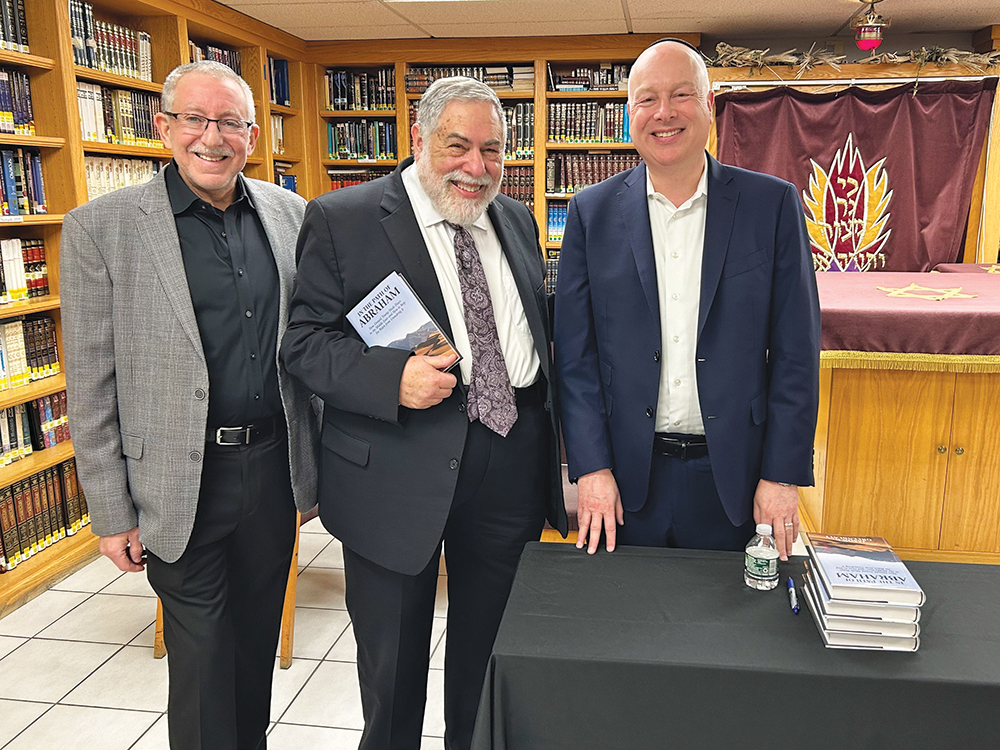
Discover East Brunswick campaign member Jeff Perlman, the program coordinator, served as the master of ceremonies for the event.
Greenblatt, who worked for Donald Trump for 20 years, said that days after Trump became president, Greenblatt was at a meeting in which Trump was talking with reporters. A reporter asked Trump: “What do you think of the Israeli settlements?” Trump pointed to Greenblatt and said that he would respond; Greenblatt stated, “They are not the reason there’s no peace.”
Perlman asked Heinrich about the nature of her work. “My job is reminding people that we didn’t want this war and our army takes many measures to save civilians,” she said. “People forget this. The missiles are also not mentioned, yet we’ve had over 14,000 missiles rained down on us in this war.”
What can the government of Israel do to prevent future attacks? Heinrich commented that not a lot of people in Israel are engaged with politics right now. The soldiers tend to ignore political news when they get a break from service on the front, and are annoyed if they’re asked about it. “The unity we see in Israel is remarkable; it’s a national effort,” Heinrich said. “And everyone is doing something, even if you think that you’re doing nothing.” She shared the story of a conversation she had recently with her mother, who wanted to help the soldiers but felt she was too busy assisting her family. Heinrich said to her: “But you are helping—you are supporting both my brother and me in our public service. That is very important!”
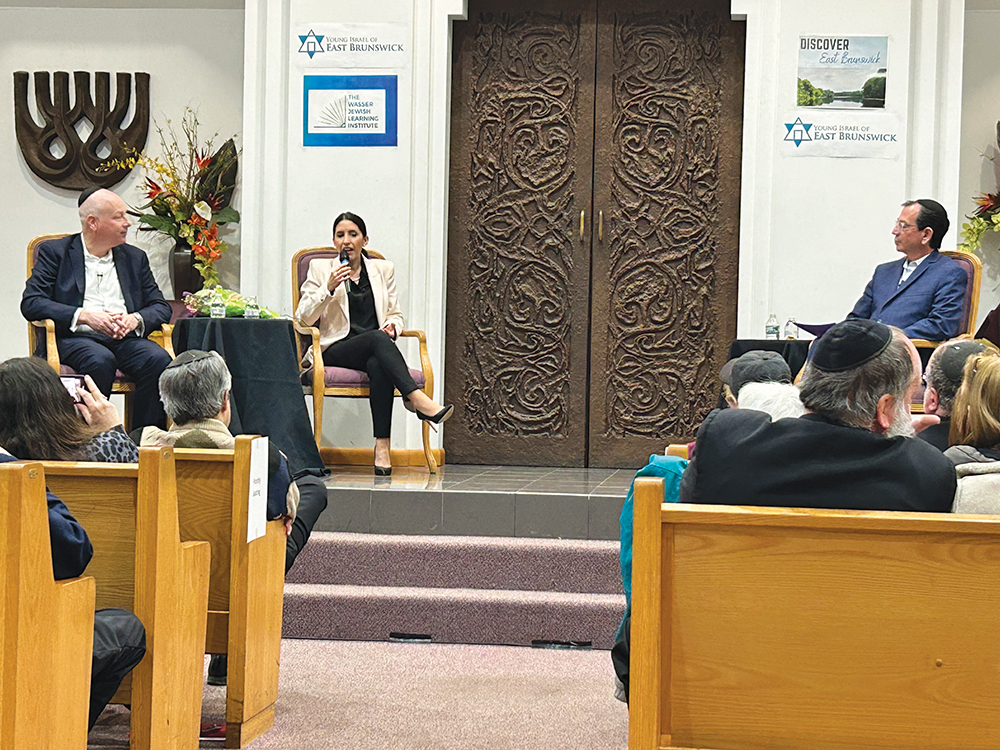
Greenblatt added that, as the U.S. is headed into an election cycle, “we need to raise our voices for Israel, because the other side is well-funded and well-mobilized.”
Perlman asked for the speakers’ thoughts on post-war Gaza, and Heinrich stated that PM Netanyahu has outlined what she termed “the three D’s”—that Hamas must be dismantled, Gaza must be demilitarized, and the Palestinians must be deradicalized. She added that for the foreseeable future, Israel must maintain a presence in Gaza.
What about the so-called “peace process”? Greenblatt responded that the concept of the “peace process” is a misnomer, because there are many festering problems in the Middle East and many are not tied to the Israeli/Palestinian conflict. At the same time, Greenblatt stated, despite the radicalization of the current generation of Palestinians, “we have no choice but to engage with them” to see if we can find a way forward.
Asked if Hamas can really be eliminated, Heinrich responded that the prime minister has outlined three goals for the war: that Hamas must be destroyed as an organized fighting force, that the hostages must be returned, and that Gaza must never again be allowed to be a terror-staging ground. Looking ahead, she reiterated the prime minister’s standing view on a Palestinian state, which is that Palestinians should have all the powers to govern themselves but no capabilities to threaten Israel.
Perlman asked if Israel thinks that Hezbollah is seeking a war and Heinrich replied: “We hope they are not interested in a war. We will do what we can to return the evacuees in the north to their homes. But if needed, we will take decisive action.” She added that this situation reminds us of the constraints of international security guarantees. Greenblatt added that international security guarantees can be defined in one word: “bupkis.”
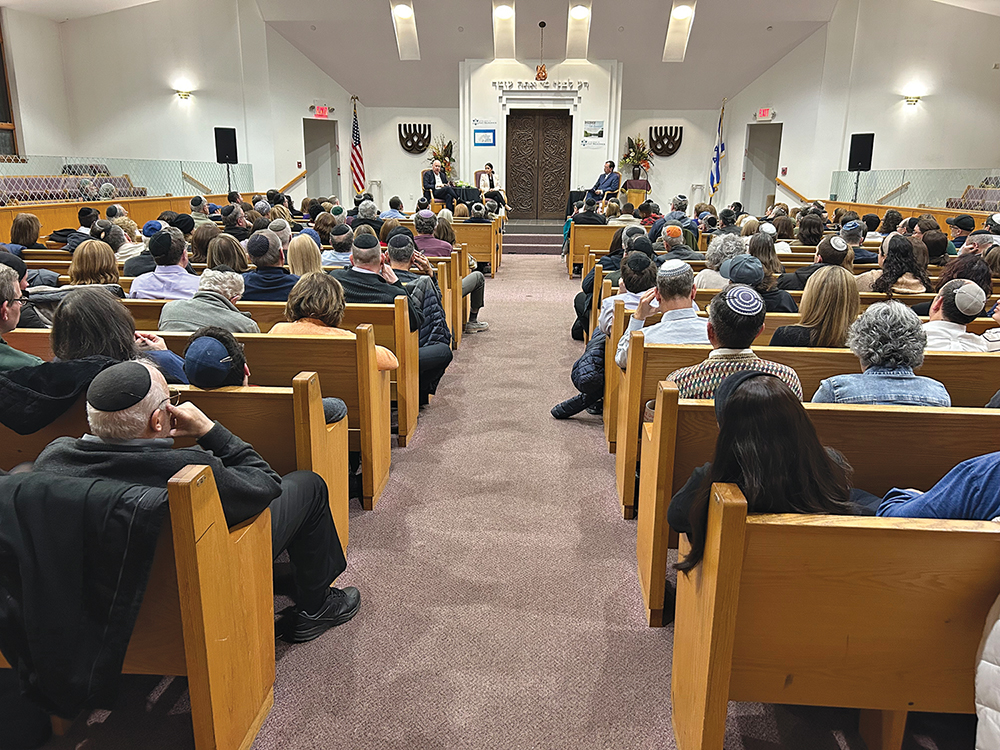
Asked what we can do here to support Israel, Heinrich replied that community members should “speak out in your community, remind people how we got here historically. We need to keep telling people.” Greenblatt stated that we need to thank elected officials who support Israel, we should encourage Jewish college students facing tough opposition on campus, and if we see an erroneous TV news segment, call the producer and point out the inaccuracies: “If you don’t speak up, no one will.”
After a break, Perlman welcomed Daniel and Neria Sharabi. Daniel, 23 years old, was a medic in the IDF; and Neria, 22 years old, had served as a ground soldier. They attended the Nova festival in southern Israel on October 7 and noticed early that morning that the rocket fire coming from Gaza seemed more extensive than usual. They shared the harrowing tale of how they evaded Hamas terrorists, who fired rocket propelled grenades at them, until they found a tank whose occupants were killed. Rummaging in the well of the tank, Neria found a weapon, repaired it, found ammunition, and then used the gun to fend off Hamas terrorists for six hours, while Daniel tended to the injured.
Neria shared that, after soldiers came to rescue them, they were evacuated and saw to their horror hundreds of victims on the grounds outside the festival. “This is something I will never forget. Now, I am dealing with the PTSD war.”

Daniel revealed that he now struggles with the knowledge that many of the attackers were not terrorists but civilians; he grapples with feelings of guilt that they survived.
Daniel and Neria have created a support group for Nova festival survivors, pointing out that 14 survivors have committed suicide and dozens more are now in mental hospitals. Neria ended their presentation by stating that “our story is not over yet,” and remarked that he and his brother realized that God kept them alive for a reason.
Commenting on the evening’s program, YIEB member Eliana Guralnik said: “Events like this are the heart of the Young Israel of East Brunswick. It’s great to see our community gather together outside of Shabbat for events like these and so many more. That is when you see the true warmth and togetherness of our community.”
For more information on Discover East Brunswick, see:
Harry Glazer is the Middlesex County Editor of The Jewish Link. He can be reached at harryglazer615@gmail.com



